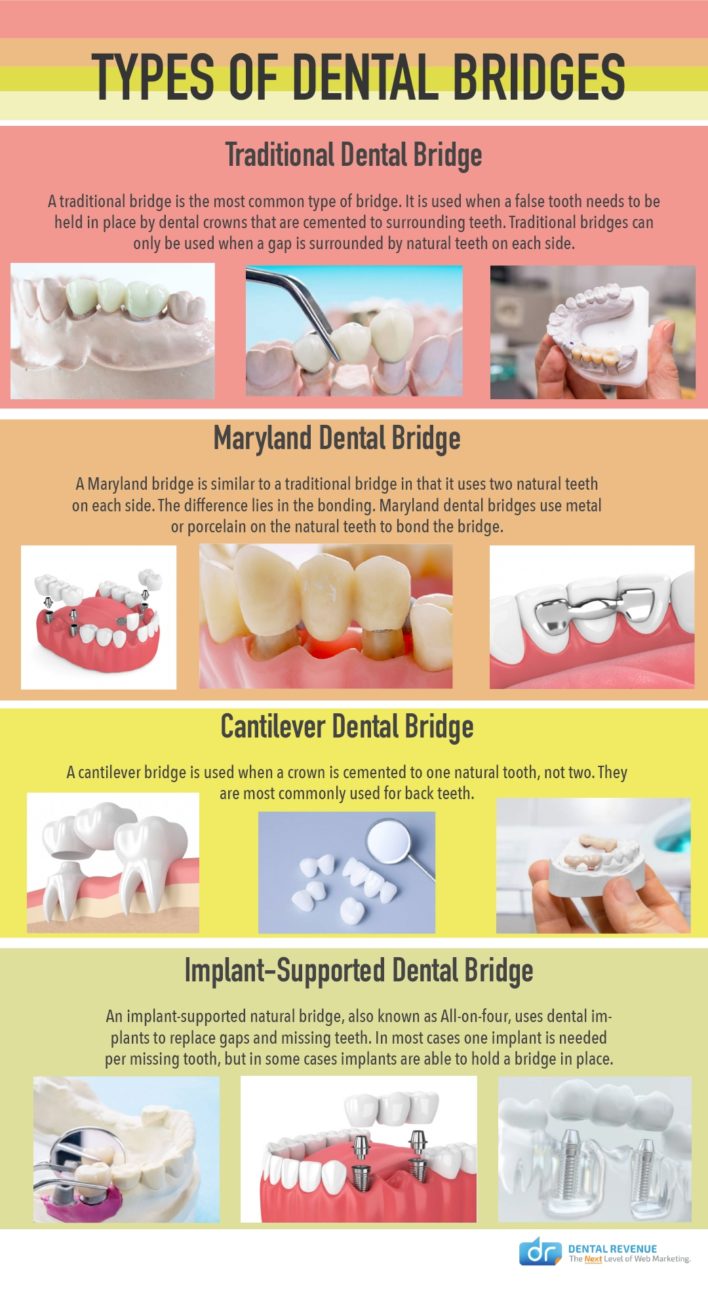A dental bridge is a device we can use to fill the space where a tooth has fallen out. A typical dental bridge consists of a replacement tooth that we attach to two adjacent teeth.
Once complete, your dentist in Baltimore, MD secures the bridge structure by bonding it to the mouth. Spaces in the mouth from missing teeth can cause multiple teeth to shift, lead to occlusion (biting) and/or jaw problems and spur periodontal disease.
There are various options for tooth replacement. All of which can safeguard the integrity of existing teeth and help maintain a healthy, vibrant smile. These options include dental bridges, affordable dental implants, and partial dentures.
Dr. Doroshenko and Dr. Lazer can discuss with you which option will work best for your circumstances. Our dental office also provides additional restorative dentistry services to new and existing patients in Baltimore, Maryland.
Dental Bridge Repair
If you currently have a dental bridge that needs repair, contact our Owings Mills dental office to schedule an appointment. Depending on the circumstances, we may perform the dental bridge repair or offer a dental bridge replacement.
Types Of Dental Bridges
Dr. Doroshenko is a Prosthodontist and will take many things into consideration when recommending a dental bridge vs. dental implants. While dental implants are the closest thing to a natural tooth, not everyone is a good candidate. You must have adequate bone structure to support the dental implant. Depending on the location of the missing tooth or teeth, a dental implant may not be a good choice.
Another major difference between a dental bridge vs implant is the cost. Dental implants require a more significant investment initially than dental bridges. However, dental implants are less likely to need future work or maintenance.
Removable Dental Bridge
A removable dental bridge is a false tooth that your dentist can place on the upper or lower jaw. It provides stability to the teeth on either side of the gap. Generally, a removable dental bridge is only a short-term solution.
A dentist may use a removable bridge to temporarily maintain tooth position while you wait for a more permanent solution. While the cost of a removable dental bridge is appealing, they do not offer good long-term benefits. Additionally, they frequently require replacement or repair down the road.
Fixed Dental Bridge
A traditional bridge and a fixed dental bridge are essentially the same thing. As the name indicates, we permanently secure a dental bridge to your mouth. In this type of restoration, a replacement tooth is connected to two dental crowns which cover the teeth on either side of the missing tooth gap, commonly called the anchor teeth. We will need to shave down anchor teeth to accommodate the crowns. This method essentially requires damaging healthy natural teeth, and puts a lot of pressure on them.
Implant-Supported Bridge
A dental bridge that we secure to at least two dental implants can replace a few consecutive missing teeth. An implant-secured bridge is a permanent bridge. The dentist may recommend to have a fixed dental bridge secured with implants instead of with dental crowns. Dental implants provide better long-term benefits and do not require the preparation of neighboring teeth.
Dental Bridge FAQs
Learn more about dental bridges with answers to these patient questions:
Are dental bridges removable?
Yes, you can remove some types of bridges. For example, a temporary bridge is removable. Dentists use temporary bridges as placeholders in situations where you are waiting for your final restoration.
You might also get a temporary bridge if you have yet to decide how you want to replace your missing teeth. Most patients use temporary bridges while waiting for a dental implant.
How do you clean a dental bridge?
To effectively clean a dental bridge, first brush your teeth and bridge as usual. Spend at least two minutes brushing. After brushing, you will need to floss between and under your bridge. There is a specific floss product for patients with bridges that makes flossing under the bridge very easy.
Flossing is very important when you have a bridge. For example, food particles that are under the bridge can cause plenty of issues. Problems such as bad breath, gum irritation, and gum infections can occur.
What can’t you eat with a dental bridge?
It’s best to stay away from very sticky foods, especially if your bridge is removable. All dentists agree that sticky foods can cause issues for your dental bridge. Sticky foods that get stuck under your bridge can be difficult to clean out. It is very important to routinely floss under your bridge. Most bridge failures are due to decay in the anchor teeth and teeth next to bridges.
How many years does a dental bridge last?
Dental bridges can last anywhere from 5 to 15 years. They can last longer with good oral care and frequent dental care checkups.
Does food get stuck under the dental bridge?
Food can become stuck under a dental bridge. There is space under the bridge where food can become trapped. Regular brushing, flossing, and dental visits can help combat buildup of plaque and bacteria under your bridge.
What can you not do after a dental bridge?
Patients with a bride should avoid crunchy and hard foods because they may cause excessive pressure that is damaging. For the first few weeks after getting your bridge, we recommend sticking to a soft diet. This will help you adjust to chewing gradually. You should avoid hard, chewy, and crunchy foods until your mouth adjusts to the new bridge.
Can a dentist remove and replace a dental bridge?
Your dentist can remove, repair, and re-cement a loose bridge back into place fairly easily. In some cases bridges cannot be repaired, and a new bridge will need to be created. Regardless, your dentist can remove and replace it if you run into an issue with your new or old bridge.
Schedule a Dental Exam & Consultation
Cosmetic & Advanced Dentistry offers consultations to discuss your dental concerns and evaluate your oral health. We offer dental bridges in our Owings Mills, MD and Baltimore area dentist office as a solution for missing teeth. Call (410) 697-6290 to schedule your complimentary consultation or request an appointment online.

